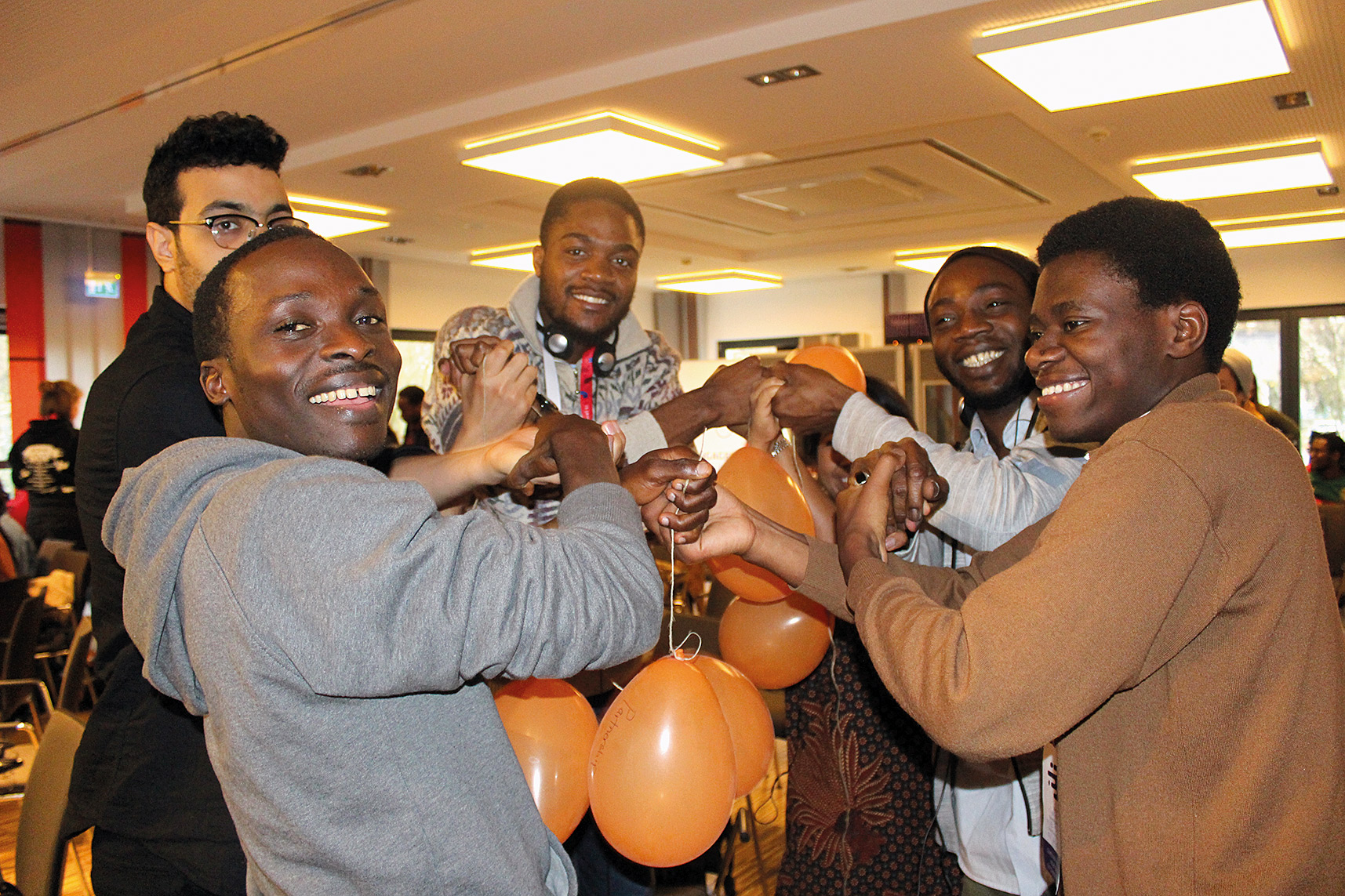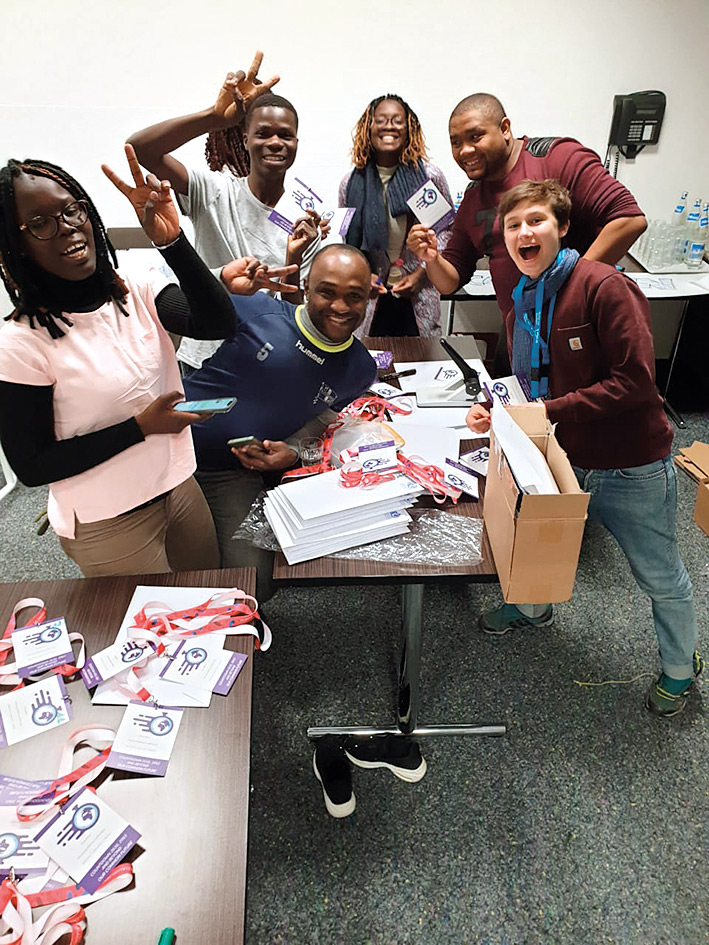International youth-led conference
Our Common Future –
Countdown 2030, 2063 & Beyond
Engagement Global, African-German Youth Initiative, GIZ African Union, NEGO-COM (Benin),
WESSA (Wildlife and Environment Society of South Africa), bridge-it! e. V. (Germany)

Participants of the conference
are networking
The international youth-led conference “Our Common Future - Countdown 2030, 2063 and Beyond” which gathered 120 young people from 22 countries on five continents took place in Cologne, Germany from 2-6 december 2019. Organised by the International Youth Committee (IYC), which consisted of three regional teams from Germany, francophone Africa and the Southern African Development Community, the conference aimed to bring together young people from the Global North (mainly Germany) and the Global South to share their visions and priorities, both locally and globally in the context of the SDGs and the African Union’s Agenda 2063.
The conference was organized by several partner organizations from different countries. In the following we, NiNa Reichert, bridge-it! program director, and Dambisa Dube, consultant of the GIZ DAJ, reflect on how this particular constellation opened transformative learning spaces.
This perspective is inspired by the work of the “Gesturing Towards Decolonial Futures Collective” (decolonialfutures.net) and the book “Emergent Strategy: Shaping Change, Changing Worlds” by adrienne maree brown.
For all involved, the project’s setup was a huge opportunity to dive into the unknown. Power, beauty and mutual trust grew in the individual, regional and international learning spaces that we co-created and supported. What we found both remarkable was the challenging intensity of shape-shifting happening at all levels, inviting us to surrender to this continuous transformation and to hold space for the youth teams’ emerging ideas, while focussing on the frameworks that we deemed necessary for this purpose.
The first focal learning in this process was how to generate a collective energy and benefit from it. The constant cultivation of an Ubuntu spirit laid a strong common ground for all collaborations including those at IYC level which prior to the conference took place exclusively in a virtual space.This spirit then trickled down to the event in an organic manner as a joint basis for all participants.
Ubuntu taken from ubuntu ngumuntu ngabantu which means ‚I am because you are‘. It encourages a sense of community and has been one of the many mantras that have shaped South Africa‘s democracy. For further reading we recommend Mungi Ngomane’s book Everyday Ubuntu.
Our second focal learning was how to stimulate constant self-reflection. By providing the necessary tools and a space for this to happen as part of the conference planning framework, it was possible for a (self)critical feedback culture to evolve. We also introduced an anti-bias perspective from the beginning by using the Respect Guide as the basis of our teamwork. Later on, the IYC decided to also use it for the conference, introducing a Feelgood Team accompanied by self-reflection questions every afternoon.
The third focal learning crystallised around the concept of “youth-led activities” and the various ways in which our project embodied this. We found that intergenerational exchanges of experiences are important in this kind of setting because they informed youth-led decision-making in a generative and constructive manner and allowed us to reflect on the associated power dynamics.
The Respect Guide can be downloaded for free in English, French, German:
www.i-paed-berlin.de/de/Downloads/

IYC members preparing welcome
package for the conference
As we reflected on the post-conference processes, we identified a 4th focal learning. It can be described as a specific Countdown spirit that was born at the conference and has grown amongst the participants. This spirit has allowed each individual to benefit, beyond the event itself, from the personal connections, the diversity of ideas, the team spirit and the learnings to be drawn. It motivates the participants to stay in touch in order to build partnership and nourish an international youth activist network.
These focal learnings have reshaped our understanding of sustainability. We found interconnectedness at the heart of this concept, which is reflected in the word itself: sUStainability. We understand this “US“ as a living practice that enables different experiences and processes of un-learning and thus questions dominant ways of being and knowledge.